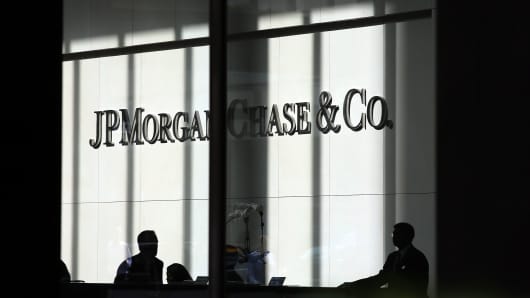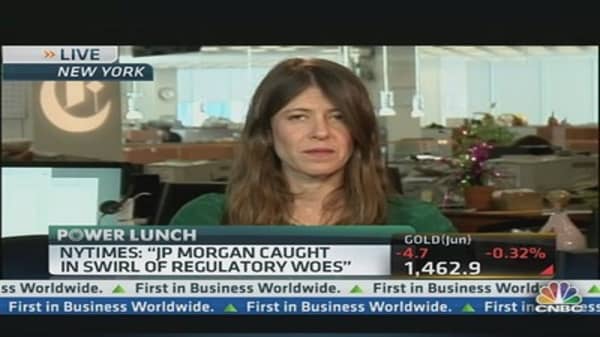The California electricity market works on a complex, multistage bidding system. The relevant feature for the JPMorgan case is that power generators can avail themselves of a backstop if their revenues fall short of certain overhead costs.
CAISO accused JPMorgan's energy traders of gaming the system by submitting low bids at one stage and high bids at another, effectively guaranteeing that actual revenue from electricity deliveries would fall below the guaranteed costs—allegedly allowing JPMorgan to collect outside payments on the guarantee.
Not that this is any defense for JPMorgan, but you have to wonder whether bureaucrats constructing byzantine regulatory systems that attempt to create a market within a government-controlled sector ever ask themselves: Are we simply developing arbitrage opportunities for Wall Streeters twice as smart as we are?
Because that's the lesson I take from this. Anyway, back to our plot.
When CAISO detected in early 2011 that it was paying unusually large sums under the guarantee, it looked into the matter and determined shenanigans were afoot. It then contacted FERC.
At the same time, it began to request information from JPMorgan. According to FERC, the company then told CAISO that it should stop its independent action and let the commission run the investigation. CAISO apparently did that—which is when things took a bewildering turn.
CAISO's rules require that it cease an inquiry after a matter is referred to FERC. But in this case, the commission decided to deputize CAISO to let it lead the inquiry. In June 2011, JPMorgan was told that it should respond to the local authority's questions.
A year later, however, JPMorgan officially complained to the federal agency that CAISO was still pursuing its investigation after it had been referred to FERC—a rules violation. The company would later say that it "did not recall" being told that CAISO was heading the probe.
FERC didn't like this "Ooops! My bad" defense at all. It has accused JPMorgan of filing false statements.
This is where things really start to read like a Kafka short story. It's not all that difficult to believe that JPMorgan didn't understand why CAISO was still asking questions. Attempting to confuse the local authority into backing off after it was deputized seems pretty weak as a dirty trick. Who would fall for being so bamboozled?
But FERC doesn't even accuse JPMorgan of attempted bamboozling. Instead, it said that it doesn't matter if the company intended a ham-handed attempt to confuse things, as under FERC's interpretation of the rules, there's no need to show intent. You asked for the wrong thing, Too Big to Fail Banker, so now you're an enemy of the state.
FERC wound up suspending JPMorgan's California energy trading rights for six months.
Now it appears, based on those government documents reported in the Times, that FERC is considering charging individuals at JPMorgan with making false statements.
That seems a harsh consequence for what looks like a stumble in a pretzel-like regulatory tangle. In a romantic comedy, this would be the sad stage. JPMorgan obviously wanted its national regulator, rather than the local California guys, to run the investigation. It wanted to go to the prom with FERC, not CAISO.
But now its desire to put FERC in charge has the commission accusing JPMorgan of making "false statements." The prom is ruined.
Incidentally, sources at FERC say that they are very disappointed about the leak. It does not appear the leak came from FERC—or JPMorgan, as some folks at the commission initially suspected. Suspicions have now turned to other regulators, perhaps a national bank regulator who would have been alerted to the possibility of a lawsuit.




